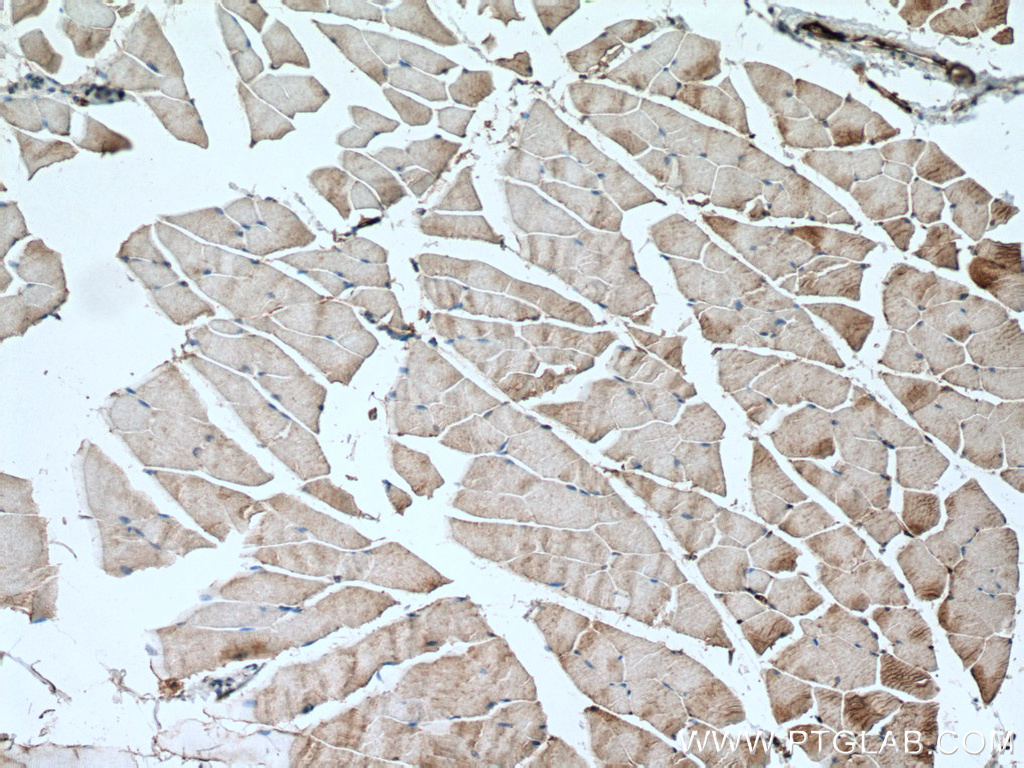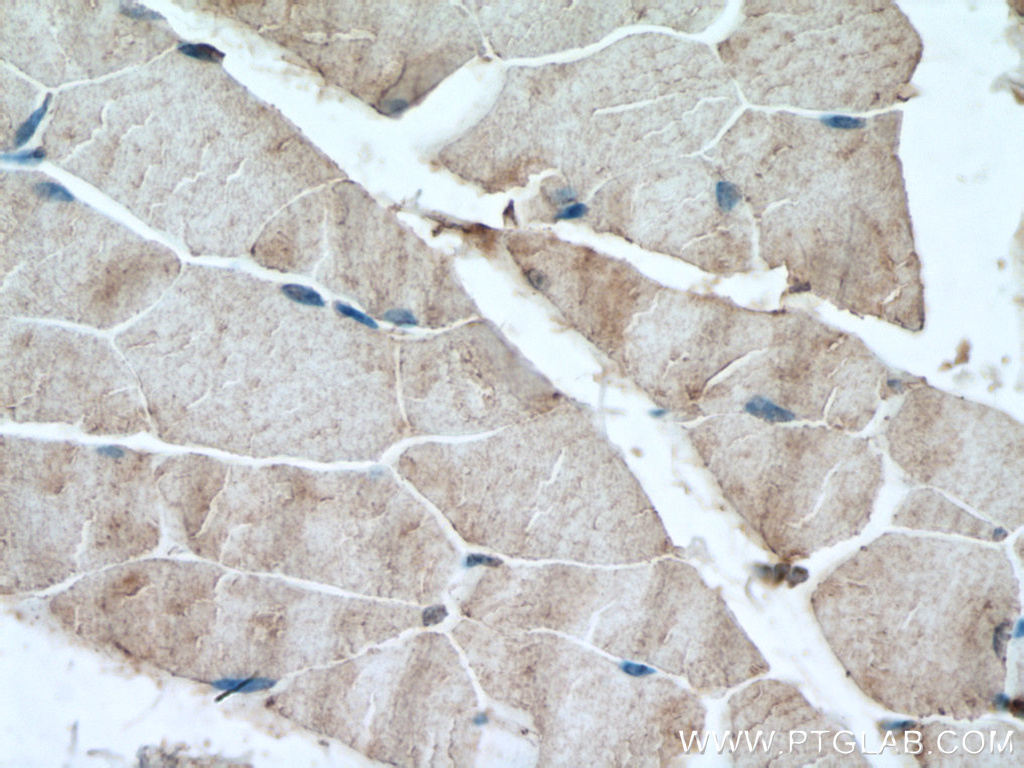验证数据展示
经过测试的应用
| Positive IHC detected in | mouse skeletal muscle tissue Note: suggested antigen retrieval with TE buffer pH 9.0; (*) Alternatively, antigen retrieval may be performed with citrate buffer pH 6.0 |
推荐稀释比
| 应用 | 推荐稀释比 |
|---|---|
| Immunohistochemistry (IHC) | IHC : 1:50-1:500 |
| It is recommended that this reagent should be titrated in each testing system to obtain optimal results. | |
| Sample-dependent, Check data in validation data gallery. | |
产品信息
28315-1-AP targets SCN4A in IHC, ELISA applications and shows reactivity with human, mouse samples.
| 经测试应用 | IHC, ELISA Application Description |
| 经测试反应性 | human, mouse |
| 免疫原 | SCN4A fusion protein Ag27536 种属同源性预测 |
| 宿主/亚型 | Rabbit / IgG |
| 抗体类别 | Polyclonal |
| 产品类型 | Antibody |
| 全称 | sodium channel, voltage-gated, type IV, alpha subunit |
| 别名 | HYKPP, HYPP, Na(V)1.4, NAC1A, Nav1.4 |
| 计算分子量 | 208 kDa |
| GenBank蛋白编号 | NM_000334 |
| 基因名称 | SCN4A |
| Gene ID (NCBI) | 6329 |
| RRID | AB_2881109 |
| 偶联类型 | Unconjugated |
| 形式 | Liquid |
| 纯化方式 | Antigen affinity purification |
| UNIPROT ID | P35499 |
| 储存缓冲液 | PBS with 0.02% sodium azide and 50% glycerol pH 7.3. |
| 储存条件 | Store at -20°C. Stable for one year after shipment. Aliquoting is unnecessary for -20oC storage. |
背景介绍
Sodium channel protein type 4 subunit alpha (SCN4A, also known as Nav1.4) is the pore-forming subunit of the primary sodium channel present in skeletal muscles (PMID: 16193245). Nav1.4 related channelopathies that affect skeletal muscle excitability are dominant diseases classified in two opposite groups as defined by the prevalent clinical symptoms: muscle stiffness and hypertonia (myotonia) episodes [non dystrophic myotonias (NDM)], and muscle weakness resulting in paralysis episodes (periodic paralyses; PP) (PMID: 20237798; 26285000).
实验方案
| Product Specific Protocols | |
|---|---|
| IHC protocol for SCN4A antibody 28315-1-AP | Download protocol |
| Standard Protocols | |
|---|---|
| Click here to view our Standard Protocols |

